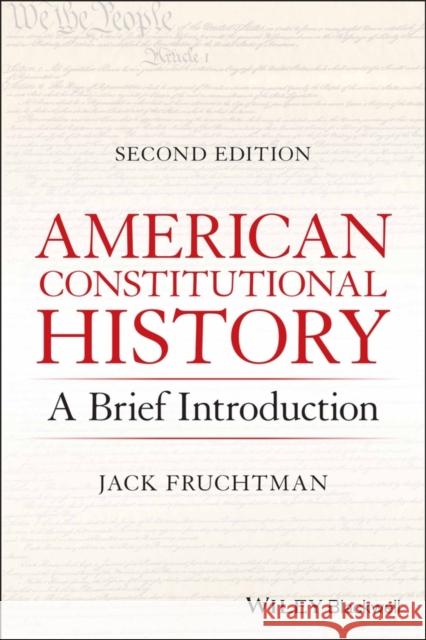American Constitutional History: A Brief Introduction » książka
topmenu
American Constitutional History: A Brief Introduction
ISBN-13: 9781119734277 / Angielski / Miękka / 2022 / 320 str.
Kategorie BISAC:
Wydawca:
Wiley-Blackwell
Język:
Angielski
ISBN-13:
9781119734277
Rok wydania:
2022
Ilość stron:
320
Waga:
0.50 kg
Wymiary:
22.61 x 15.19 x 2.01
Oprawa:
Miękka
Wolumenów:
01
Dodatkowe informacje:
Bibliografia











